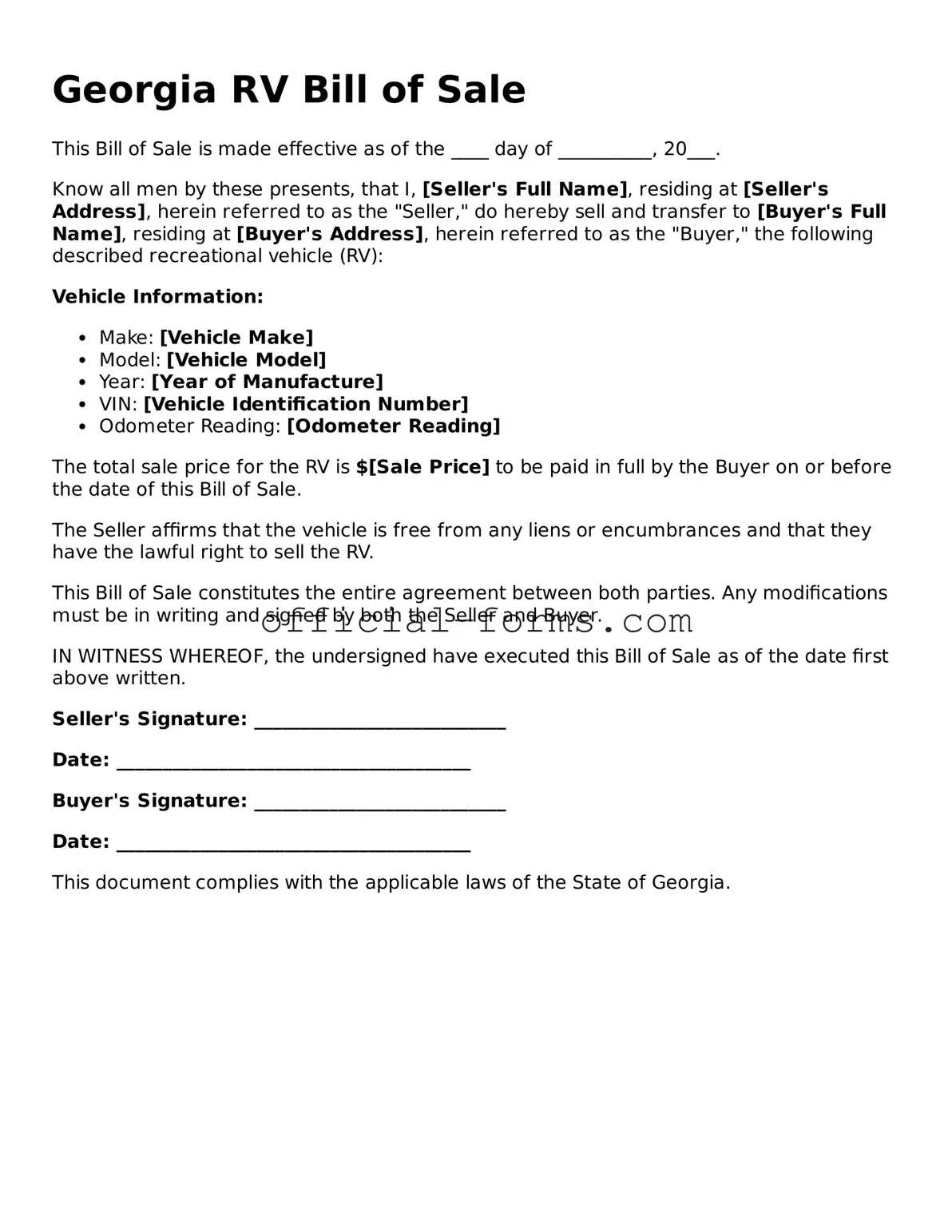Official Georgia RV Bill of Sale Document
The Georgia RV Bill of Sale form is a legal document used to record the sale of a recreational vehicle in Georgia. This form provides essential details about the transaction, including the buyer, seller, and vehicle information. Completing this document ensures that both parties have a clear understanding of the sale and protects their rights.
Open My RV Bill of Sale Now

Official Georgia RV Bill of Sale Document
Open My RV Bill of Sale Now
Don’t leave your form incomplete
Finish RV Bill of Sale online quickly from start to download.
Open My RV Bill of Sale Now
or
➤ PDF
